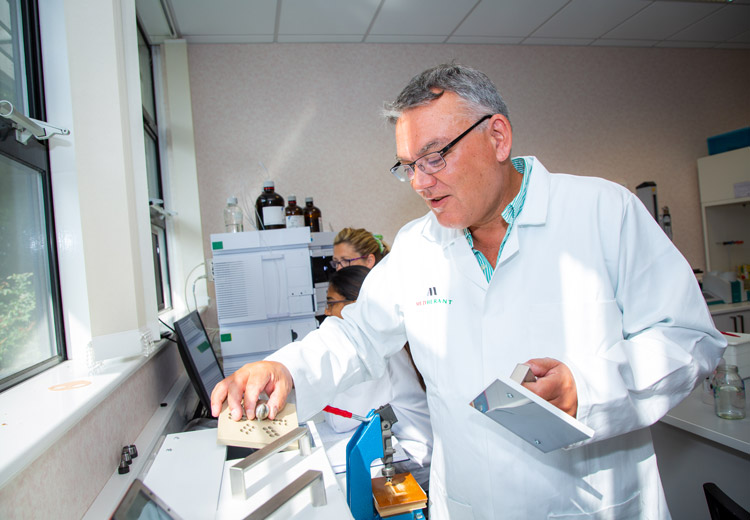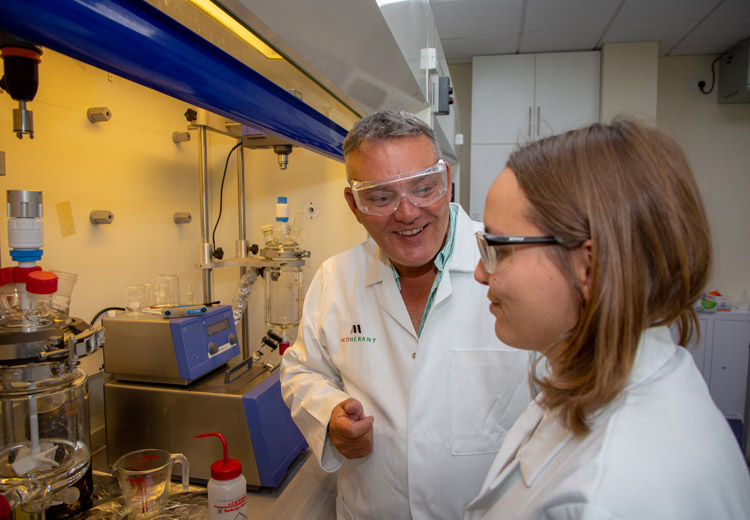The University of Warwick’s spin-out company, Medherant, aims to launch a testosterone patch for menopausal women

Sponsored by

Sponsored by

Innovative research at The University of Warwick has led to pioneering solutions in the field of menopause-related healthcare
Conversations regarding menopause are gaining attention in the UK. While the lack of awareness about menopause is a challenge for those coping with its adverse effects, the absence of effective and convenient treatments has an even greater impact on their quality of life.
Although menopause is largely associated with a decline in oestrogen, testosterone levels also decrease during this phase. Despite commonly being referred to as the male hormone, testosterone also plays a crucial role in the well-being of women.
Women’s health is often overlooked by the pharmaceutical industry, especially the issues associated with menopause, resulting in limited research, inadequate treatments and insufficient awareness. While transdermal patches for oestrogen and progestogens are available in hormone replacement therapy, there is currently no transdermal patch for testosterone available to women experiencing adverse menopausal symptoms.
Recognising this need, Medherant, a spin-out company from The University of Warwick, has developed a testosterone patch for postmenopausal women. The product is currently undergoing a clinical trial and, upon successful completion of the development programme, will be the only approved and available transdermal testosterone patch for women.
“It’s important to not just do the research, but to create a product that is useful and solves a problem,” says David Haddleton, a professor in the Department of Chemistry at The University of Warwick and chief scientific officer at Medherant.
As a polymer chemist, an important focus of Haddleton’s research in the development of the patch was designing an adhesive for the job at hand. “In order for a transdermal patch to work, the most important thing is that it has to stick to the skin for an appropriate amount of time. It has to dissolve the right quantity of testosterone and deliver the required dose over the correct time period,” says Haddleton.

Medherant started its operations in a dedicated facility within The University of Warwick Science Park. A breakthrough in the research was using a substance called crosslinked polyurea as the patch adhesive. This was found to have excellent adhesion and allowed the product to be simplified and manufactured without the use of organic solvents.
The team conducted experiments studying the diffusion of testosterone from the patch to human skin to examine its effectiveness prior to the selection of the optimum formulation for use in the clinical trials and final product.
“This was quite time-consuming as we had to change the formulation many times to optimise it and arrive at a formulation that will deliver the dose that women have already been shown to require over four days,” says Haddleton. The clinical trial for the patch is taking place in London using active patches that were made in Dijon, France as there is currently no manufacturing capability in the UK for this type of product.
Haddleton adds that an important consideration during the development of the patch was ensuring that it would be effortless to remove without causing any damage to the skin or leaving any residues. The patch has been designed to enable individuals to carry out their daily tasks and participate in physical activities, such as swimming and yoga, without any hindrance.
The testosterone patch will foster innovation in menopause-related healthcare and improve the quality of life for those who are suffering from adverse symptoms of menopause. As an academic and researcher, Haddleton prioritises research that solves problems in society. “It’s much better, I think, to focus our knowledge and skills on trying to solve a problem that will benefit people and society,” he concluded.
Find out more about research at The University of Warwick.